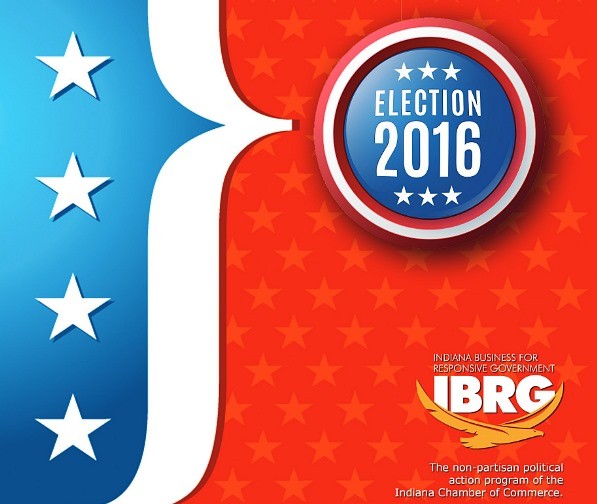 It’s been a busy week for Republicans wanting to challenge Sen. Joe Donnelly for his seat. The number now stands at six.
It’s been a busy week for Republicans wanting to challenge Sen. Joe Donnelly for his seat. The number now stands at six.
On Wednesday, Congressman Todd Rokita (IN-04) officially announced his intentions while on the steps of the Indiana Statehouse – it marked the first stop in his nine-city tour sharing the news.
“Hoosiers want a commonsense senator willing to take on tough fights. Hoosiers want a conservative senator who shares our values and works with President Trump and Vice President Pence to turn the country around,” Rokita said. “Hoosiers want a senator who votes the interests of Hoosiers, not the Washington elite. We don’t have that in Joe Donnelly, and too much is at stake to accept it. That’s why I am announcing my candidacy for the United States Senate.”
Rokita’s campaign slogan promises to “Defeat the Elite” in Washington.
Meanwhile, Congressman Luke Messer (IN-06) will formally announces his bid Saturday at the 6th Annual Messer Family BBQ in Morristown.
Senator David Long, President Pro Tempore of the Indiana State Senate, has already thrown his support behind Messer:
“As a young and talented member of the Indiana House, Luke proved his conservative credentials early on by helping us create a new vision for Indiana in partnership with Gov. Mitch Daniels. As a strong and innovative leader for educational choice, Luke fought to ensure Hoosier families and children have the options they need to obtain a world-class education. As a quickly-rising star in Congress, Luke has proven he can work with difficult coalitions of interests to move an agenda for the American people.
“While the Republican Party is blessed to have a number of candidates interested in the seat, I believe Luke to be the absolute best person to effectively represent the interests of all Hoosiers in the U.S. Senate.”
State Representative Mike Braun of Jasper officially entered the race on Thursday. He previously cited the public sparring of Messer and Rokita as well as his business experience as reasons for his decision.
Meanwhile, Indiana Attorney General Curtis Hill made it clear on Wednesday that he hasn’t ruled out joining the GOP primary.
Other Republicans already in the field are Hamilton County businessman Terry Henderson, Kokomo attorney Mark Hurt and Floyds Knobs educator Andrew Takami.
In terms of any congressional endorsement the Indiana Chamber may provide, the matter is taken up by our federal political action committee (PAC). Bill authoring and voting history on pro-jobs, pro-economy legislation and in-person interviews of the candidates will play large roles in the decision making.
The PAC’s work won’t begin until after the candidate filing deadline early next year – as it’s possible a candidate may decide not to run, while there also could be someone else elect to throw their hat into the ring. But when the time comes, you can be assured that a thorough vetting process will take place before a determination is made to endorse a candidate (or no candidates).

 Earlier this summer, Sen. Luke Kenley (R-Noblesville) announced his plans to retire from the Indiana Senate on September 30 after a quarter century representing constituents in Hamilton County.
Earlier this summer, Sen. Luke Kenley (R-Noblesville) announced his plans to retire from the Indiana Senate on September 30 after a quarter century representing constituents in Hamilton County. Progress on health care reform by Senate Republicans came to a halt very early this morning as the so-called “skinny repeal” of the Affordable Care Act (ACA) narrowly failed 49-51. All Democrats were joined in their opposition by Republican senators Susan Collins (Maine), John McCain (Arizona) and Lisa Murkowski (Alaska).
Progress on health care reform by Senate Republicans came to a halt very early this morning as the so-called “skinny repeal” of the Affordable Care Act (ACA) narrowly failed 49-51. All Democrats were joined in their opposition by Republican senators Susan Collins (Maine), John McCain (Arizona) and Lisa Murkowski (Alaska).
 Congressman Luke Messer (IN-06) was recently appointed by House Speaker Paul Ryan to serve on the recently created bipartisan Task Force on Intergovernmental Affairs, which is charged with working to restore the proper balance of power between federal, state and local governments.
Congressman Luke Messer (IN-06) was recently appointed by House Speaker Paul Ryan to serve on the recently created bipartisan Task Force on Intergovernmental Affairs, which is charged with working to restore the proper balance of power between federal, state and local governments.

 We’re all still recalibrating after last Tuesday’s election results. While the citizenry ponders what this means for the country and the issues dear to us, the impact on labor and employment policy is a top consideration for business-focused organizations like ours.
We’re all still recalibrating after last Tuesday’s election results. While the citizenry ponders what this means for the country and the issues dear to us, the impact on labor and employment policy is a top consideration for business-focused organizations like ours. Indiana Business for Responsive Government (IBRG), the non-partisan political action program of the Indiana Chamber of Commerce, scored a very successful general election; 57 of 59 IBRG-endorsed candidates facing opposition were victorious, including Republicans and Democrats. Twenty additional endorsed candidates did not face general election challenges.
Indiana Business for Responsive Government (IBRG), the non-partisan political action program of the Indiana Chamber of Commerce, scored a very successful general election; 57 of 59 IBRG-endorsed candidates facing opposition were victorious, including Republicans and Democrats. Twenty additional endorsed candidates did not face general election challenges.